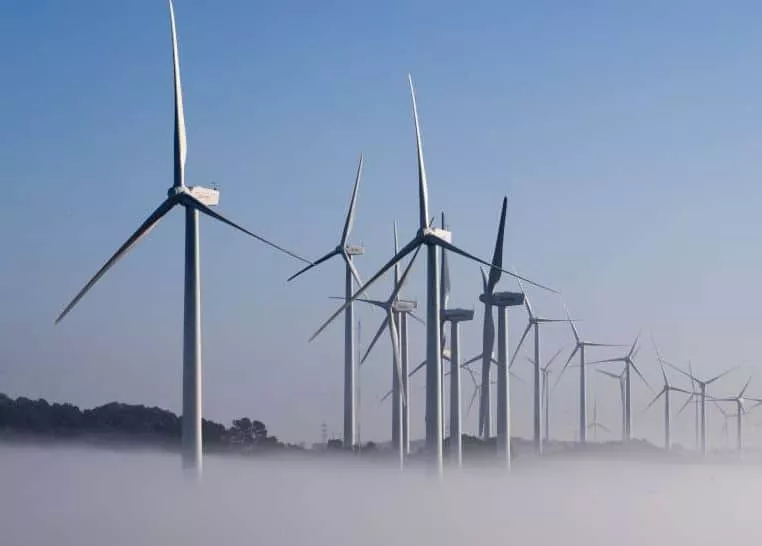
Goodbye… Sun Tax!
A radical change in Spain's energy policies could already be seen coming. Not only because electricity is through the roof - which is important and we will see how it ends - but because we were on a dead end and against the coherent reasoning that the European Union has been promulgating for several years in the field of renewables.
Today, we can say that … The "sun tax" is history! … Thanks to the new Royal Decree Law on energy transition approved by the Council of Ministers and which translates into the Royal Decree Law 15/2018, of October 5, of urgent measures for the energy transition and consumer protection…

Like many users of the portal, he has a special interest in the chapter on the Self-consumption of Royal Decree Law 15/2018, because we leave a small summary of the most important points:
- For din! … The right to self-consume electricity no fees. The right to shared self-consumption is also recognized (Several users can share the same installation) and the principle of technical and administrative simplification is introduced.
- Production facilities not exceeding 100 kW of power associated with modes of supply with self-consumption with surplus energy will be exempt from the obligation to register in the administrative register of electrical energy production facilities.
- Self-consumed renewable energy will be exempt from all types of tolls and charges.
- Those installations that do not have discharge to the network (Up to 100 kW) will be executed in accordance with the provisions of the Low Voltage Electrotechnical Regulation.
- With the theme of sanctions. The maximum penalty will be the higher of the two amounts: 10% of the annual billing for electricity consumption or 10% of the billing for the energy discharged into the network.
We must remember that there are many benefits generated by renewable energies, among which we can highlight them is that they are clean, indigenous, improve the environment, generate their own wealth and employment and reduce energy dependence.
With all its benefits, in Spain, we continue to use energy from fossil fuels - especially oil or gas, which we also do not have in our territory - as we can dilute from the following two graphs; The first is the primary energy consumption for 2022 in Spain and the second is the primary energy consumption by energy sources from 2010 to 2022.


A country like Spain, which has magnificent renewable resources, should have decidedly and firmly promoted the use of renewable energies for a long time, such as the city that only uses renewable energies, in order to reduce the extremely high dependence on foreign energy that it suffers and damages both the trade balance and the environment.
However, the evolution of power and renewable generation to national in Spain, which has been stagnant for many years as we can see in the following graph:

Remember that you can know the entire renewable energy situation in Spain from the Report "Study of the Macroeconomic Impact of Renewable Energies in Spain" by the APPA.
The new energy transition law focuses not only on repairing what we can see in the previous graphs, but also focuses on other relevant points to combat the current energy situation in the country such as:
- The extension of the electricity social bond
- The social bonus for heating
- Protection measures for consumers
- The elimination of the »sun tax»
- The momentum of the electric vehicle
- The moderation of electricity prices
- Compliance with renewable energy targets
The coverage of the electricity social voucher will be expanded and a thermal voucher is created, which is a direct aid to defray heating costs. Within six months, what they call Strategy against Energy Poverty.
The new norm suspends the generation tax and approves an exemption from the so-called green cent. Two shock measures to urgently moderate the price of electricity in the wholesale market and, consequently, the electricity bill.
The law recognizes the right to self-consume without charges, eliminating the so-called "sun tax". Shared self-consumption is regulated and legally recognized and administrative and technical procedures for self-consumption are simplified.
The "Ecological Transition" proposal urgently addresses the current rise in electricity prices, offering greater coverage to citizens in vulnerable situations and increasing consumer protection, with measures that will allow better adjustment of the tariff to the consumption, reducing your electricity bill.
Also, the standard adopts measures to accelerate the transition towards an energy model based on renewable energiesand the activity of recharging electric vehicles is made more flexible, eliminating the figure of the charge manager.
The legal text sets as The fight against energy poverty, which affects some 4.6 million people, is a priority.
Within six months of its entry into force, the Government will present a National Strategy against Energy Poverty that will establish objectives, in the medium and long term, and a stable framework of action for its eradication. Its preparation will involve the autonomous communities and local entities, consumer associations, representatives of the third sector and energy companies.
If you liked this article, share it!


